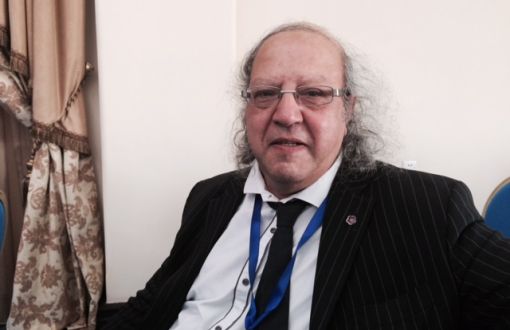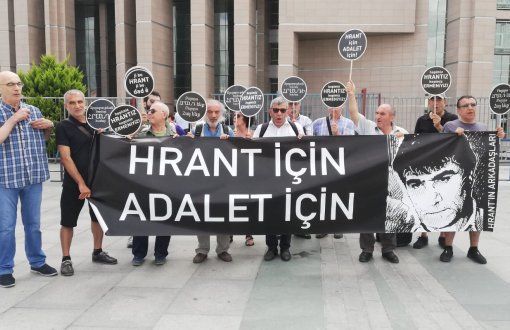INTERVIEW WITH IFJ PRESIDENT BOUMELHA
What is the Role of Journalists in the Discussions of Genocide?

One of the keynote speakers at “At the Foot of Ararat” International Media Forum in Yerevan, Armenia was Jim Boumelha, the President of the International Federation of Journalists .
According to Boumelha, the role of journalists regarding the discussions in the recognition of the Armenian Genocide comes from the “making the news of the real”.
“Dialogue is important for journalists"
Emphasizing that the discussions are only possible through the initiative of journalists, Boumelha underlined on the contradictions when it is about two contrasting opinions of each party.
“Turkey denied the genocide. When it is about the discussion of this, journalists have lots of burden. They are stressed out more. However, the journalists can’t remain silent. And this situation leads to the improvement of the discussions. Turkey’s denial of the genocide is no longer newsworthy. In this case, journalists’ role to talk about this becomes more important.”
"Sometimes journalists have to break the rules"
“I come from the UK. Years ago, Margaret Thatcher attempted to block a series of interviews with the actors of the Irish War. However, journalists resisted on the issue and broke through the pressures.
“Sometime you just have to break the rules and even laws. This is probably not a surprising move for the journalists in Turkey. Up until long time ago, Turkey had the highest number of jailed journalists in the world. But sometimes you might have to confront the public opinion in order to tell the truth.”
Perinçek’s Armenian Genocide case
Boumhelka also reminded that public discussions included the contrasting opinions such as in the case of Doğu Perinçek who has been convicted of denying the Armenian Genocide in Switzerland and taken the case to the European Court of Human Rights.
“Discussion require contrasting ideas"
“If there is a discussion, there will be contrasting ideas as well. There are people who deny the Holocaust even though it is forbidden by the law and are ready to face trial. They can show themselves as the victims of this case. But there is the other side of spectrum.
“When we take the Charlie Hebdo incident, the magazine was defending the freedom of expression especially regarding Islam. This is the reason why so many people now can say ‘I am Charlie’. But how logical is it when the magazine publishes the most provocative caricatures about Prophet Mohammad and refuse publishing caricatures on the Holocaust? This is a dilemma for all journalists actually. It is a choice that every journalist must make.”
In this context, Boumelha still defends that the role of the journalist is to reveal the truth. “However, the real problem is,” he continued, “whether they have the power to do so”. (EA/BM)
* Click here to read the article in Turkish.
Hrant’s Friends on Watch at 75th Hearing

2 People Released from Prison in Hrant Dink Case

Hrant’s Friends are at Justice Watch at 72nd Hearing

Afrin Resident Blames ‘FSA’, Habertürk TV Translates as ‘YPG’
.jpg)
7th Hearing in Cumhuriyet Trial
.jpg)




